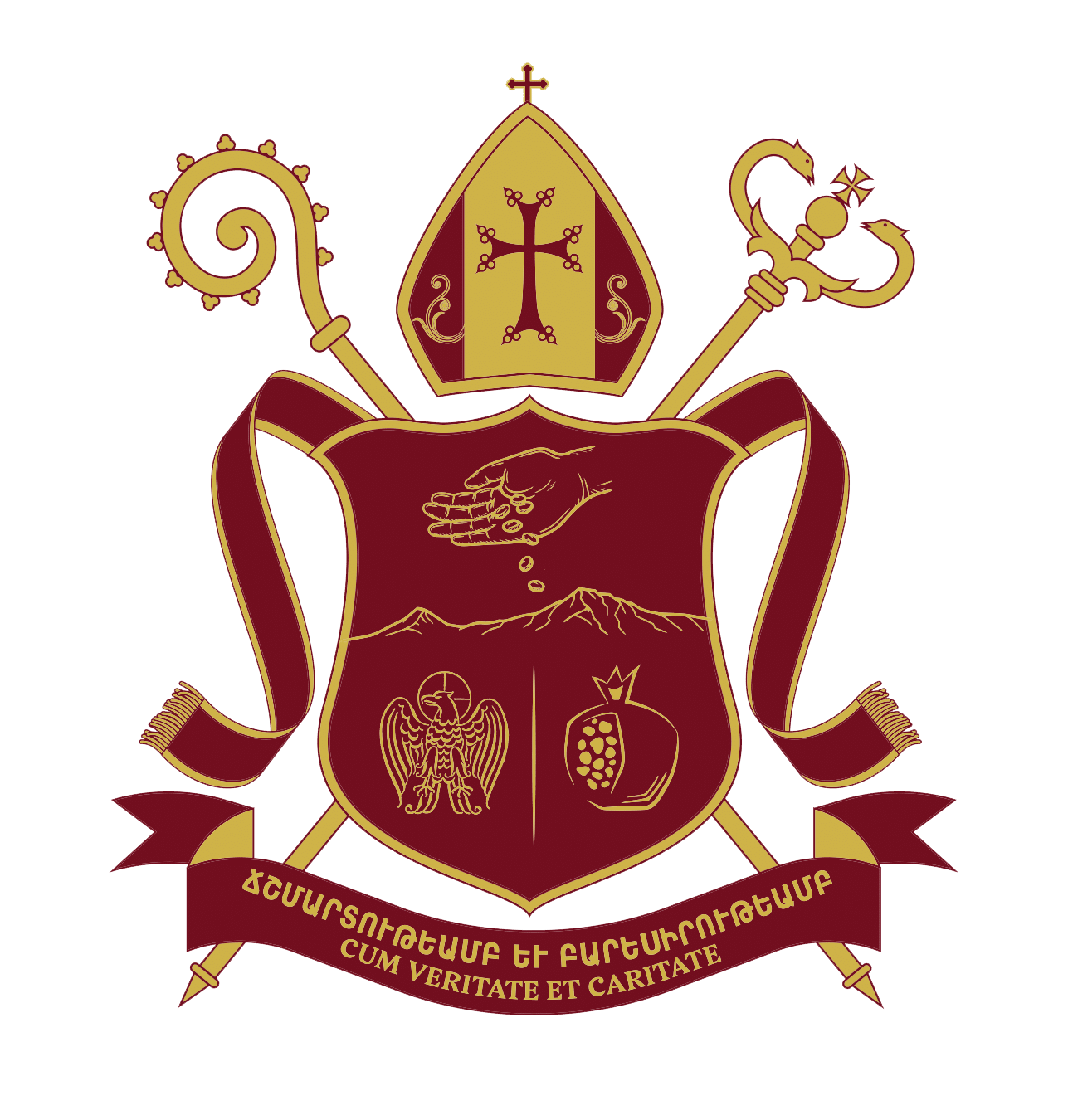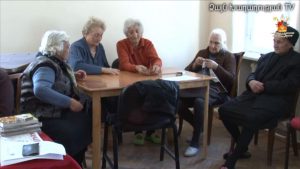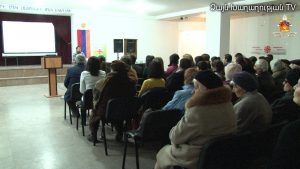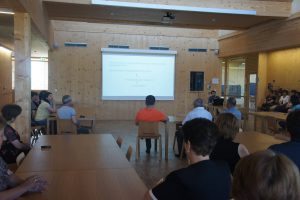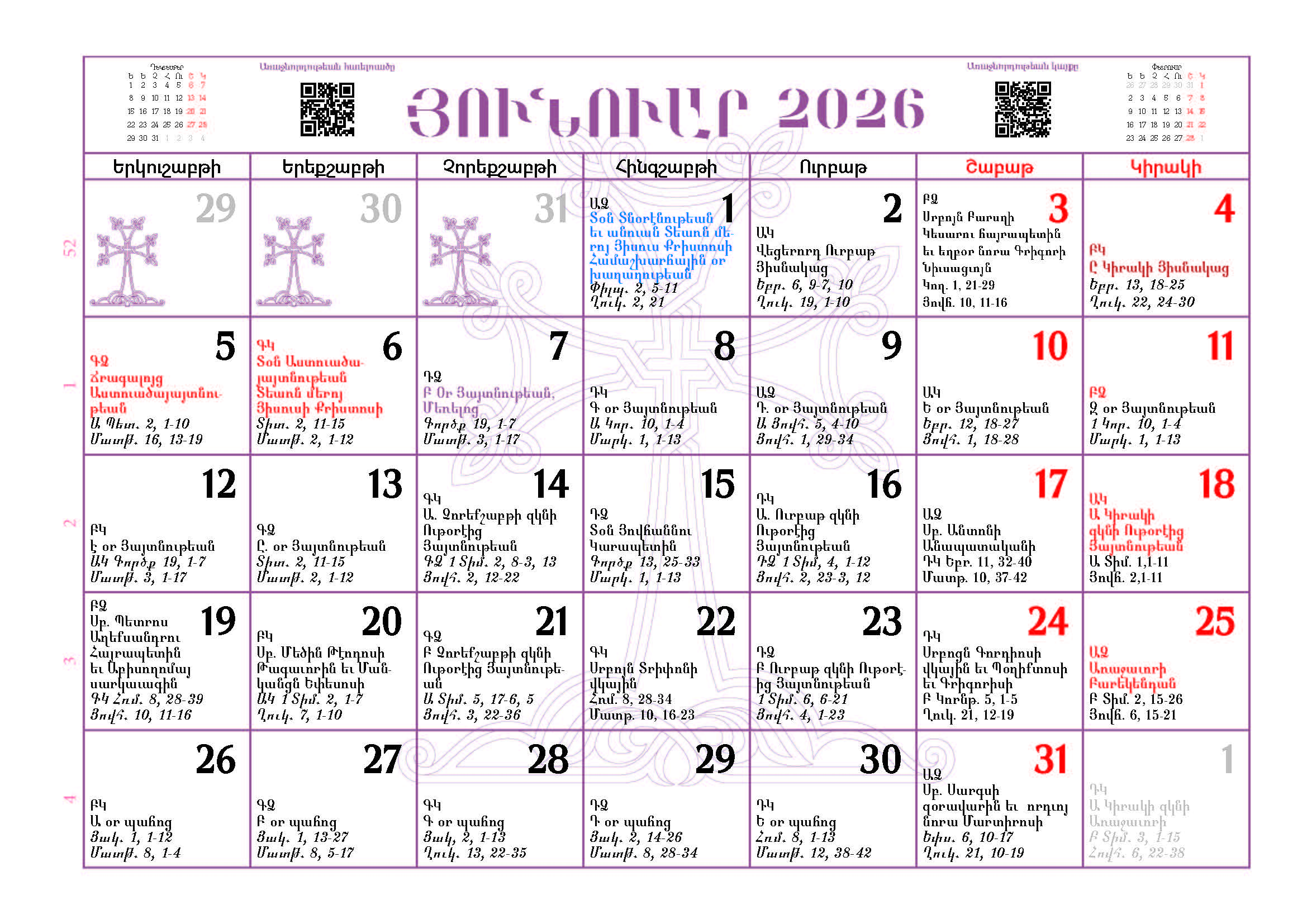- Interview with Anahit Gevorgyan-Programme Officer of Armenian Caritas
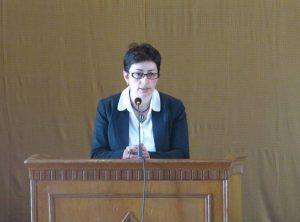
“Our faith and our commitment to the poor are very strong”.
12 August, 2016
In this interview Anahit Gevorgyan speaks about the best incarnation of the Catholic Social Teaching in Armenia-Armenian Caritas, its projects and goals, also about the keys of solution of the complex social problems which exist in Armenia today.
Caritas Armenia is located in Gyumri. From that town, the organization coordinates the work of 9 social projects in 4 regions, along with an office in Yerevan that focuses in migration, integration and trafficking. In addition, Caritas Armenia is an active member of the Armenian civil society dedicated to disaster prevention and response. The needs are many in Armenia and they evolve too. In that sense, Caritas Armenia has identified new areas of actions.
Anahit Gevorgyan is Caritas Armenia’s programme officer in charge of supervising all the ongoing activities of the organisation. She told us about the work and mission of Caritas Armenia and its future plans.
What is Caritas Armenia known for and what are the other areas of activities that the organisation is engaged with?
Anahit. We are mainly known for our substantial experience in providing social and health care services to children, women and elderly, as well as with our recent involvement in disaster risk management. However, Caritas Armenia is also active in 3 other fields. Integration of Syrian refugees; prevention of emigration of Armenians, with a special focus in informing and warning them about the risks of illegal migration, trafficking and labour exploitation; and, last but not least, community development, which somehow encompasses all the other activities but is mainly focused on empowering the actors of the local communities – rural and urban – in order to give them tools and skills to be active actors of the development of their communities.
Another novelty in our work is advocacy. Up to now, our advocacy efforts were limited to specific objectives around specific projects. Now, we will structure our advocacy and communication work in order to obtain wider objectives with societal impact for Armenia. Our focus for the next 3 years, 2017-2019, will be to promote our models of service delivery in the areas of child and elderly health and child protection, as replicable models for the state and to obtain a 10% co-financing from the state for our projects in these areas.
Emigration seems to have become a important topic of discussion. The country is losing around 50,000 people each year. What are the consequences of this?
Anahit. This is a difficult topic. On the one hand, migrating really is the only actual solution available for many to sustain themselves and their family. The remittances that the Armenian diaspora sends to their relative in Armenia act as lifebuoy for these families and the economy of the country. On the other hand, emigration has tremendous negative impact on many families and the communities. Most of the time, men are those who migrate, leaving behind their families and elderly parents. The majority of these families get to reunite once or twice a year. This situation creates very high levels of stress and anxiety among them. It is a huge psychologic sacrifice for all of them, and for the children in particular. Besides the psychological and relationship problems, there are also health issues resulting from occasional sexual relations that men might have in the recipient countries. The growth of the percentage of HIV infections in Armenia proved to link mostly to the seasonal migration factor. Caritas Armenia is working in the directions of prevention of illegal migration, re-integration of returnees and HIV/AIDS prevention. The prevention activities we develop are of awareness raising character, while re-integration is supported by the provision of need-based consultancy, training and financial support to start a new life in Armenia. In parallel to raising the awareness on the risks of HIV infection, Caritas Armenia offers free testing of HIV, hepatitis B,C and syphilisis. These are known to be the most wide-spread infections.
People are leaving the country in big numbers. This is probably an obstacle to community development. How does Armenian Caritas work in this specific field?Anahit. We find positive in any negative, opportunities in difficulties. Migration for Armenians can also be an interesting source and inspiration for development. When Armenians return from more advanced countries, they bring their experience back and adapt it and use it in the Armenian context. However, to migrate is not an easy decision. Most people migrate because they must. To start a new life in a totally “alien” environment can be very difficult. So if we can provide the slightest opportunity for families to earn enough to live in their own country, we then play a crucial role in preventing new migration risks, as well as in attracting the return and re-settlement of families that migrated previously. Through our community development projects, we try to create “resilience” and tackle the main causes of migration from several angles: by renovating and reconstructing basic infrastructures from one side. And from the other side, by raising civil participation and consciousness of the population. We also work with farmers and entrepreneurs to give them the opportunity of starting income-generating activities to develop agriculture, farming, entrepreneurship on which they can sustain themselves and their families, and contribute to the wealth of their community.
The situation in Armenia is complex. The country is confronted with serious socio-economic challenges, involved in unresolved geo-strategic disputes and is located on an active tectonic plaque making it prone to natural catastrophes like the Spitak earthquake in 1988. Yet, against all odds, people like you and all Caritas’ staff and volunteers do not give up and believe that change is possible in Armenia. Where do you find your strength to continue?
Anahit. Caritas Armenia’s mission is also mine and of all the staff members: “to serve different vulnerable groups with love and compassion, respecting the dignity of each individual”. Unfortunately in Armenia, there are too many people that are vulnerable and whose dignity is not respected. Fortunately, there is much love and compassion among Armenians!
It is true that the obstacles are important. But our faith and our commitment to the poor are very strong. And we also know that Caritas organisations in Europe will not abandon the people we are serving. We count on their support until we find ways to be sustainable on our own.
The material is kindly provided by the PR Officer of Armenian Caritas-Marina Bazaeva.
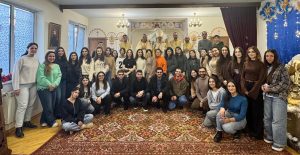 Founding General Assembly of the Armenian Catholic Youth Union
Founding General Assembly of the Armenian Catholic Youth Union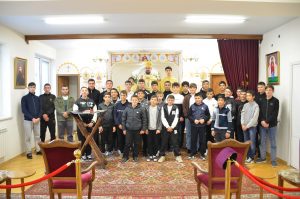 Trainings for Ministrants of Holy Liturgy
Trainings for Ministrants of Holy Liturgy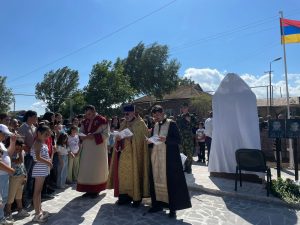 A Cross Stone Dedicated to the Heroes of Artsakh War Was Anointed in Mets Sepasar
A Cross Stone Dedicated to the Heroes of Artsakh War Was Anointed in Mets Sepasar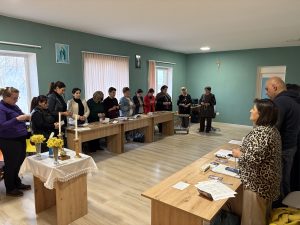 Days of Retreat. Holy Eucharist is the Missionary Pivot of the Legion of Mary
Days of Retreat. Holy Eucharist is the Missionary Pivot of the Legion of Mary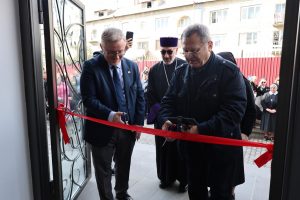 Another Cradle of Charity and Ministry: Inauguration of Diramayr Hayastani Youth Center
Another Cradle of Charity and Ministry: Inauguration of Diramayr Hayastani Youth Center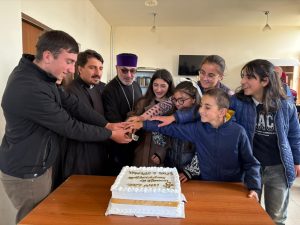 His Excellency Kevork Archbishop Noradounguian served a Holy Mass in St. Nshan church in Bavra
His Excellency Kevork Archbishop Noradounguian served a Holy Mass in St. Nshan church in Bavra
